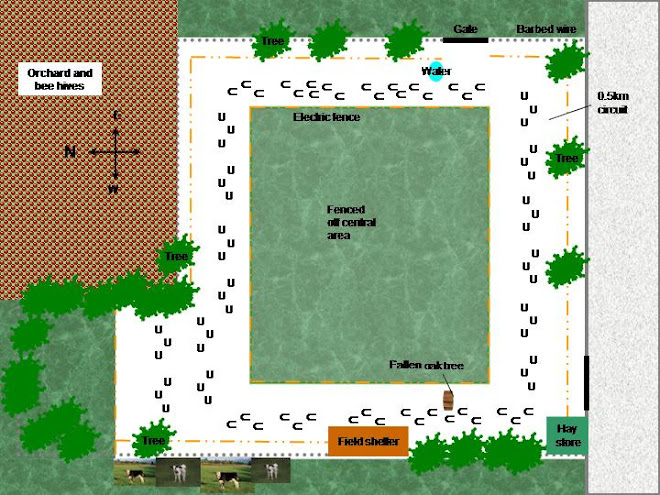Failure to understand the healing angle causes a lot of horses a lot of unnecessary grief*. Although in one sense it is a pretty simple, straight forward guide, because getting it right is so important I am not going to attempt to go into detail about it here. Much better to either get in an AANHCP trimmer or attend a course run by the training arm of the AANHCP.
But in short - hooves will grow at the correct angle within the context of that particular horse, if the horse is allowed to live optimally (this includes the whole DEET).
You can see the angle the hoof wants to grow at, near the top of the hoof, just below the coronary band. If this angle doesn't continue to the ground, something, somewhere is going wrong. And there is no arguing with this, hooves don't lie, they just do what they need to do. No matter how frustrating tracking down the problem is, no matter how 'perfect' the management being offered, if the healing angle can not be maintained then 'Houston we have a problem.'
*I am pretty sure that 'traditional' trimming does not acknowledge the healing angle - hence the fixation with wedges, caulks etc (which totally disrespect the healing angle).
Shoes mask weaknesses, barefoot highlights strengths
Friday, 16 July 2010
Subscribe to:
Post Comments (Atom)








1 comment:
So, if i understand it properly - if the angle of growth is in one line from coronet till the ground, everything is ok? also if the horses heels are one and half inch high and his too long 4inches? what to do then if there is one nice angle of whole hoof - no difference between H and B, but the toe is longer than natural?
Thanx a lot for your answer,
Veronica
Post a Comment